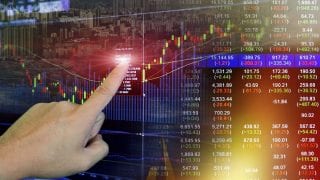Much like the Great Depression did to the “Greatest Generation,” the financial crisis of 2008 seared the souls of millions of investors. Almost six years after the collapse of Lehman Brothers, professional Cassandras never ceased predicting that the next economic meltdown and a stock market crash is just around the corner.
That’s ironic…
After all, U.S. stock markets have been in a classic bull market for over five years now.
Instead of gold hitting $5,000 an ounce and the Dow Jones collapsing below 1,000, the S&P 500 has risen 189% from a low of 683 on March 2, 2009, to yesterday’s close of 1,971. The Nasdaq closed yesterday at its highest level since early 2000.
And that’s with the most anti-business U.S. administration since the days of Woodrow Wilson.
The Case Against a Coming Crash
First, let’s review the factors that have supported this surprising bull market.
Most of the global economy has recovered from the very worst of the economic contraction between October 2008 and March 2009. Strong earnings growth, combined with record levels of share buybacks, has boosted companies’ earnings per share. Finally, artificially low interest rates supplying liquidity to the banking sector have served as a tailwind to asset prices around the world.
There are still several contrarians willing to endure the public humiliation of being in the bull camp. The much-reviled Goldman Sachs reckons that another economic collapse is unlikely. Sure, Goldman concedes that the stock market could crash any day. But one of the key preconditions needed for an economic bust is high credit growth. Credit may be accelerating. But in the grand scheme of things, it’s still at pretty low levels. The global economy is more macro-economically stable than headlines would suggest.
Steven Auth of Federated Investors is another brave bull who thinks the S&P 500 will hit 2,100 by the end of 2014. Auth also predicts the S&P 500 will reach 2,500 within the next 18 months to two years. The combination of growth, bond rates and perceptions of risk will continue to propel the U.S. stock market ahead. With the Fed paranoid about tightening rates too soon, as it did in 1937, a liquidity backdrop for stocks will remain favorable.
The Case for a Coming Crash
Yale University Professor — and now Nobel Laureate — Robert J. Shiller is a famous stock market bear. He is one of the brains behind the Cyclically Adjusted Price Earnings (CAPE) ratio — a smoothed 10-year average price-to-earnings ratio.
In Schiller’s view, the U.S. stock market is very expensive. Today, the U.S. stock market’s CAPE is hovering at a worrisome level of above 25. It’s only been higher three times in the last 135 years: in 1929, 1999 and 2007. Each of those years was followed by a major market crash.
Shiller’s analysis makes it seem like a bet against the U.S. stock market is a no brainer.
It is… until you learn that based on Shiller’s CAPE measure, the U.S. market has been overvalued for the past 20 years.
Since August 1994, the S&P 500 has risen from 463 to 1,971 yesterday. Had you listened to Shiller, you’d have missed out on a 4.25X rise in U.S. stocks.
The Answer Is… “I Don’t Know… and Neither Do You”
Opinions on the outlook for the market are a dime a dozen. If we throw enough darts at the board of market prediction, someone is bound to hit a bull’s eye. Nothing is more common on Wall Street than this year’s “one hit wonder” in market prognostication.
But the way humans are wired, even if we aren’t right about our predictions, our ability to rationalize is boundless.
Here’s a personal example…
A few years ago, I predicted that the Dow would reach 15,014 by October 2012. This was based on the average return of the Dow following lows hit on a measure of consumer confidence. I was widely mocked at the time for the temerity of such an absurd prediction.
Well, sure enough, when October of 2102 rolled around, the Dow had yet to hit that level.
But six months later, the Dow did breach 15,000. And yesterday it closed at of 16,838.
Objectively, the Dow failed to hit my target by the date I set out.
But, in my mind, I wasn’t “wrong.”
I was just early.
After all, I was a lot more right than Robert Prechter, who predicted the Dow would crash to 1,000 around the same time.
That reminds me of joke.
Question: “Why is rationalization more important than sex?”
Answer: ”Try going a week without rationalization.”
The only real answer to whether the market crash is coming is “I don’t know.”
But smart people have a tough time uttering those simple words.
Here’s how Robert Shiller said “I don’t know” in a recent article:
…nothing I’ve come up with is a slam-dunk explanation for the continuing high level of valuations. I suspect that the real answers lie largely in the realm of sociology and social psychology — in phenomena like irrational exuberance, which, eventually, has always faded before. If the mood changes again, stock market investments may disappoint us.
Sadly, measured answers like that don’t fit into 140 characters on Twitter.
And I bet Shiller would sell a lot more books with: “Gold will hit $10,000 by Nov. 1; on the brink of World War III!”
After all, investors prefer a punchy wrong answer to a wishy-washy correct one.
Robert Hall, my Stanford macroeconomics professor and now chair of the Committee on Business Cycle Dating — the folks who officially call recessions — provided a more pithy answer than Shiller in this week’s Economist:
“The next recession will come out of the blue, just like all its predecessors.”
I believe you can say the same thing about the next stock market correction.
In case you missed it, I encourage you to read my e-letter column from last week about the Arab economies you should invest in. I also invite you to comment in the space provided below.

![[two bears]](https://www.stockinvestor.com/wp-content/uploads/7937304368_ece8985ecc_b.jpg)


